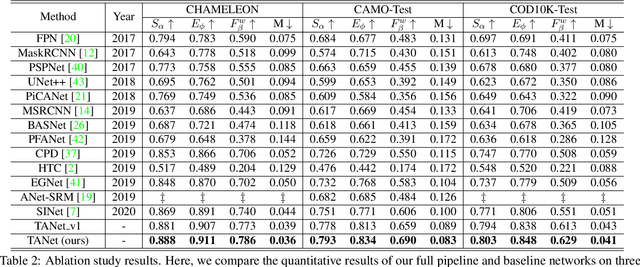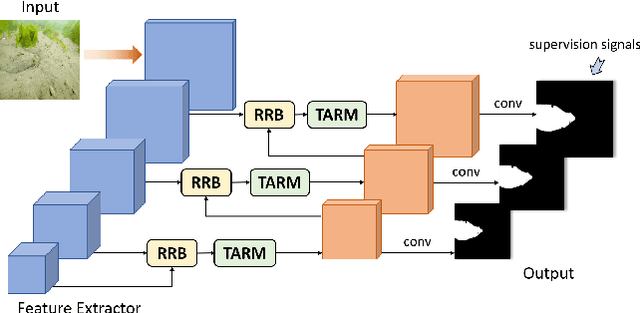Zijun Deng
Probabilistic Joint Recovery Method for CO$_2$ Plume Monitoring
Jan 30, 2025Abstract:Reducing CO$_2$ emissions is crucial to mitigating climate change. Carbon Capture and Storage (CCS) is one of the few technologies capable of achieving net-negative CO$_2$ emissions. However, predicting fluid flow patterns in CCS remains challenging due to uncertainties in CO$_2$ plume dynamics and reservoir properties. Building on existing seismic imaging methods like the Joint Recovery Method (JRM), which lacks uncertainty quantification, we propose the Probabilistic Joint Recovery Method (pJRM). By estimating posterior distributions across surveys using a shared generative model, pJRM provides uncertainty information to improve risk assessment in CCS projects.
Deep Texture-Aware Features for Camouflaged Object Detection
Feb 05, 2021



Abstract:Camouflaged object detection is a challenging task that aims to identify objects having similar texture to the surroundings. This paper presents to amplify the subtle texture difference between camouflaged objects and the background for camouflaged object detection by formulating multiple texture-aware refinement modules to learn the texture-aware features in a deep convolutional neural network. The texture-aware refinement module computes the covariance matrices of feature responses to extract the texture information, designs an affinity loss to learn a set of parameter maps that help to separate the texture between camouflaged objects and the background, and adopts a boundary-consistency loss to explore the object detail structures.We evaluate our network on the benchmark dataset for camouflaged object detection both qualitatively and quantitatively. Experimental results show that our approach outperforms various state-of-the-art methods by a large margin.
 Add to Chrome
Add to Chrome Add to Firefox
Add to Firefox Add to Edge
Add to Edge